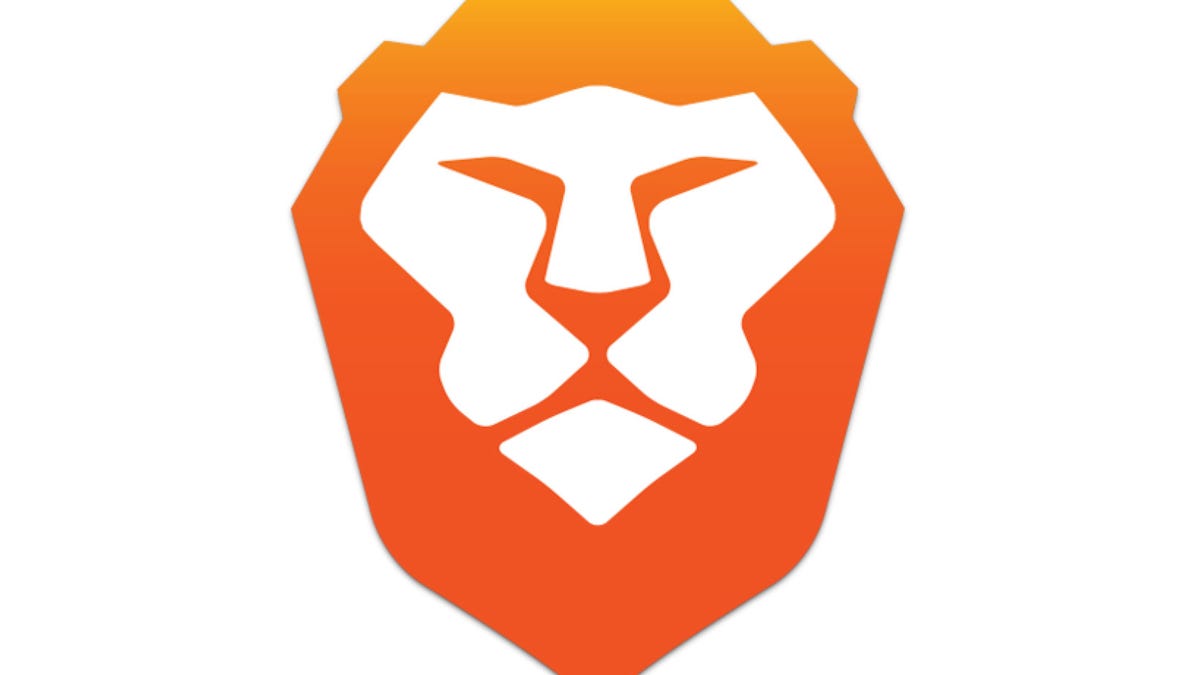Ad-blocking Brave lets you contribute cash to your favorite websites instead
The Brave Payments system, now in beta testing, uses bitcoin technology to let people pay for sites they like -- if Brave can convince site publishers to collect the money.

Brave Software's logo
Feeling guilty that Brave blocks ads on websites you actually might want to support? A new version of the web browser lets you contribute money directly.
Brave 0.11.6 lets you contribute monthly to sites you visit with a feature called Brave Payments now in beta testing. About $5 a month is about enough to replace lost revenue from advertising, said Brave Chief Executive and co-founder Brendan Eich
"This is our idea for people who tell us they want to automatically micro-donate to websites, but they don't want to do it signing up with their credit card at hundreds or thousands of sites," Eich said. To complete the transaction, though, website publishers will have to fetch their money from an account -- and some that don't like Brave's ad-blocking ways have said they won't play ball with the startup.
Still, Brave's ideas come at an opportune time. With at least 198 million people using browser plugins to block ads, web publishers are in danger of losing a key revenue source, and the public is in danger of losing free information online. Who wants news, photos, videos and other content hidden behind paywalls if you can avoid it?
Brave Payments also is a key step the company's master plan to make publishers and readers allies, not adversaries. Publishers today often track users' browsing behavior and their personal information so they can deliver more lucrative ads targeted toward specific populations. Brave plans to confine the ad targeting to the browser to preserve privacy -- and ultimately to share some of the ad revenue directly with Brave users, too.
Brave's financial strategy is to share 55 percent of its ad revenue with publishers -- 70 percent when users don't specifically carve off 15 percent for themselves. Brave itself will keep 15 percent and send 15 percent to ad technology business partners.
Brave Payments lets you send money toward specific websites or block them.
Key to this plan will be actually convincing publishers to take money from Brave's ads.
Publishers aren't showing much eagerness, though. In April, the Newspaper Association of America lashed out Brave's plan to strip out publishers' ads and drop in its own.
But Eich said he's made headway and soon will be in New York again for more meetings with publishers. "We already peeled off some of the bigs from their hostile stance," he said, without saying who's come round to Brave's view.
Eich established his browser cred by inventing the web's JavaScript programming language in 1995 while working at browser pioneer Netscape. He also co-founded its offshoot, Mozilla, which develops the Firefox browser.
The payments system automatically generates a private list of websites, based on browsing behavior. You can specifically enable or disable contributions to those websites, Eich said. For now, Brave excludes "platform" websites that rely on ordinary people for content -- Twitter and YouTube, for example -- until the company can work out a way to send some of its ad revenue to who tweet and post videos, too.
Brave Payments is an anonymous system so Brave and website publishers don't know who's actually donating the money. It uses the Bitcoin digital currency to power the money transfer so it's clear Brave isn't up to any payment shenanigans.
"It's a public decentralized ledger so it can be audited. People can verify we're not skimming," Eich said. "That auditing is very important to us. There's a lot of nontransparency or fraud in the ad-tech business."
Bitcoin enables low-friction payments, but there can be friction convincing people to use it. To try to smooth the path, Brave has partnerships with BitGo to holding bitcoin funds in electronic wallets; Coinbase so people can buy bitcoins from within Brave; and Private Internet Access to keep people's IP (Internet Protocol) addresses out of Brave's own logs.

